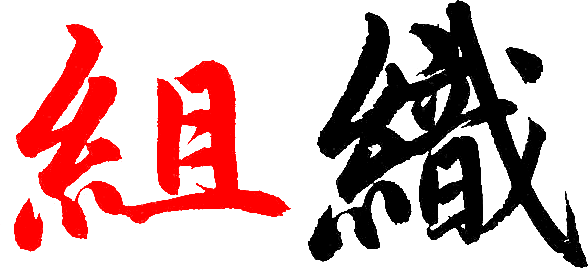I just wrote two Hawaii politics posts in a row.
Who Pays Hawaii Politicians to Play?
Hipsta Pravda cartoonist Will Caron’s latest may be too optimistic:
I could easily write more, and I do have more on my to-do list. But fear not, I haven’t lost sight of the big picture. NO COPE is not NO REST OF THE WORLD.
I think it’s useful to oscillate between the micro and the macro. The specific and the general. The case study and the principle.
Today I want to write about a principle that should have been obvious to me but wasn’t. Not until
pointed it out:[Y]our ability to self-organize effectively is what determines what level of success you will have [at gaining power]. The contents of the shared belief of your members is a very minor and relatively inconsequential factor in the larger equation. Most successful organizations throughout history have honed in on successful organizational techniques regardless of the fundamental belief that they’ve claimed to believe in. That is to say, all successful organizations used successful organizational techniques. All unsuccessful organizations used unsuccessful organizational techniques and imploded or were destroyed because of that. So long as your deeply-held cult beliefs aren’t too retarded or too self-sabotaging, you can basically believe in any kind of nonsense so long as you actually organize in sound ways despite it.
If anyone can think of a belief system whose adherents seized power in spite of lacking an ability to organize, I’m all ears. Or eyes, since writing is a visual medium.
In East Asia, ‘organization’ is (or was1) written as 組織 ‘group weave’, shown here in Mao Zedong’s handwriting:
I use Mao’s handwriting a lot in this Stack not because I like it - it is illegible and ugly - but because I have a font of it, and it’s easier to use that font than to fish for individual characters by master calligraphers such as Zhao Mengfu (1254-1322). Here’s Zhao’s rendition of the word:
In Zhao’s day, the word meant ‘to spin and weave fabric’.
Six centuries later, the early modern Japanese repurposed the word to mean ‘organization’, a key concept in their efforts to catch up with the West. That semantic transformation was possible because in Japan, the character 組 (in red above), originally ‘cord’ in Chinese, had come to be associated with the native Japanese word kumi ‘group’: people metaphorically tied together with a cord. This Japanese reinterpretation of 組織 as ‘group weave’ = ‘organization’ then spread to the rest of East Asia, pronounced in various local manners:
soshiki in Japanese
zǔzhī in Mandarin
zouzik in Cantonese
chó͘-chit in Taiwanese
chojik in Korean
tổ chức in Vietnamese
Both characters in the word 組織 ‘organization’ contain the 糹 thread radical on the left. Without organization, without being woven together, each of us is but a single thread. Fragile and easily snapped.
Hawaii is a mess of 1.4 million threads.

Clumps in multiple colors side by side. Peoples speaking at least 130 languages according to the 2016 census. I don’t know what my neighbors are saying, and they may not understand everything I’m saying in English. Lots of parallel worlds here with only a few lowest common denominators: the USSA dollar, fear of CONvid, and loyalty to the One Party.
To an organization. The organization:
It is currently the dominant party in the state, and is one of the strongest affiliates of the national Democratic Party. The party currently controls both of Hawaii's U.S. House seats, both U.S. Senate seats, the governorship, and has supermajorities in both houses of the state legislature, controlling nearly 90% of all legislative seats.
For two years (2016-2018), the Hawaii Senate (below) was 100% Democrat!
For decades, the party had little difficulty in winning local and statewide elections, with a significant number of Democrats running unopposed in certain years.
Stray strings like me are no threat to such a well-woven monolith. Not even if my ideas are better than theirs. They don’t even really have any ideas. Blue does not mean Woke in Hawaii; it’s just a gang color.
I wasted decades as an Objectivist, as a member of the Ayn Rand cult, believing in the nonexistent power of the solitary string. One man can … what? Ponder his ideology? Play with ideoLEGO?

I made up that term reading Rurik last night:
The worst offenders are probably the types who spend their days writing out complex legal and tax codes for their future regime that they’ll implement when they take over. How exactly will they take over though? *crickets*. This is the equivalent of playing with Legos, but for adults who think that they’re smart. Spinning out new constitutions and legals codes to be upheld by a future hand-selected Autistocracy is just a form of play for socially retarded man-children without a lick of common sense in their bones and brains.
A few men can ideoLEGO together. That doesn’t do them much good, as Rurik explains:
They like to spend their days on the internet in small groups of like-minded ideologues debating the finer points of their preferred ideology. They also react with extreme hostility and insecurity when asked whether or not this is a productive use of a dissident’s time or just a pointless cosplay hobby for society’s most socially awkward left-behinds. All dissident groups that I am aware of are busy trying to convince others and themselves to adopt some niche religious or political or economic ideology which they promise will solve all of society’s problems. Sadly, most people believe in ideological “Orthodoxy” of a kind i.e., in “correct belief” even if they don’t consider Patriarch Kyril their personal spiritual father.
But proper belief in ideological dogma does not make anyone one iota stronger.
Proper belief in what some lady who died in 1982 espoused did not make me one iota stronger.

Objectivism isn’t uniquely debilitating, though. USSA society conditions its prisoners to embrace a false dichotomy:
to celebrate oneself as a ‘mighty atom’
to obey some existing organization
The vast majority take the second path and empower their oppressors while a powerless minority LARPs as Howard Roark and John Galt, the heroes of Rand’s most famous novels.
We are not taught how “to self-organize effectively”. We are either by ourselves or part of another organization that doesn’t have our best interests at heart. We are not forming our own organization.
We are not even making friends.
Friends are more than names in your Rolodex
I apologize to LEAFBOX for not reading his interview with Rurik Skywalker until yesterday.
I use the word friend very selectively. Rurik uses the word in a similar manner:
But when I’m talking about just in general, outlining the principles of community formation and not even community formation, like scaling it down a little bit, how to have friends.
One of the appeals of having friend circles is that friend circles are not ideological. Friend circles are not religious. That’s the thing. That’s why I stress the concept of friendship.
It’s that whenever I bring up, hey, you know, people should probably organize themselves into small groups and to develop these sorts of communities. People are like, yes, let's start cults. And I'm like, no, like this is like literally the key thing that I'm trying to argue against [… Y]ou can't allow that kind of thinking into your friend circle.
In our scenario, you're trying to get together with five men, trying to get five guys together who will support each other, who won't rat each other out, who will work together, who will help each other, who you want to be around. You're trying to create a friend circle.
Trying to tie five threads together.
If we can’t even do that, do we just wait for the Regime to collapse?
The Chinese character spelling of ‘organization’ is extinct in Vietnam and North Korea, and on the verge of extinction in South Korea. In all three countries, the word is normally written in the local alphabet: chữ Quốc ngữ ‘script of the National Language’ (the Vietnamese version of the Latin alphabet) and the Korean alphabet, called 조선글 Chosŏngŭl ‘Korean writing’ in North Korea and 한글 han’gŭl ‘great writing’ in South Korea.
Although the Vietnamese and Korean alphabets have existed for centuries, the elite of Vietnam and Korea wrote in classical Chinese in Chinese characters until early modern times. Ho Chi Minh was part of the last generation of Vietnamese elites literate in classical Chinese.











